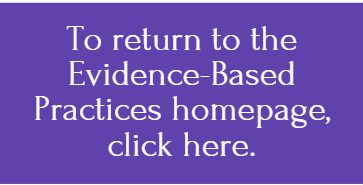Iris Center at Vanderbilt University – EBP

What is the Iris Center? “The IRIS Center offers high-quality online, open educational resources (OERs) that translate research to practice for use in personnel preparation and ongoing professional development so that educators have the knowledge and skills they need to use evidence-based practices to improve outcomes for all students, especially struggling learners and those with disabilities. (Iris Center, 2019).”
Click here to access the Iris Centers Information Brochure.
The Iris Center at Vanderbilt University offers a wide variety of professional development for teachers, administrators and those in the education field. The modules are created by leaders in the field and are backed by research. Each professional development module includes a course with step-by-step training, videos and case studies on a variety of topics.
Here are a the topics that the Iris Center has created high-quality modules for:
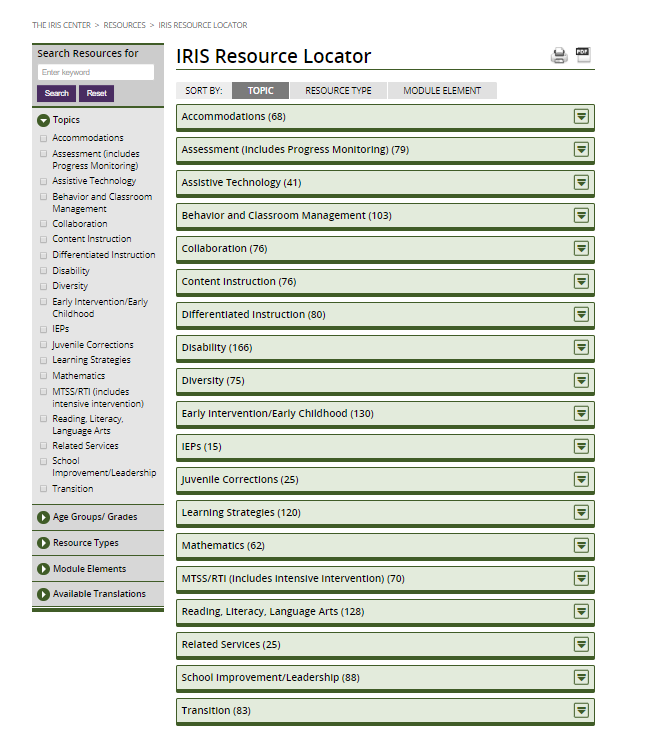
(Source: Iris Center, 2019)
The modules that we will focus on for this page, are the two modules, that the Iris Center created for Curriculum-Based Measurement. Located below is information on each of the modules and links to access the resources.
The modules are set up in five parts:
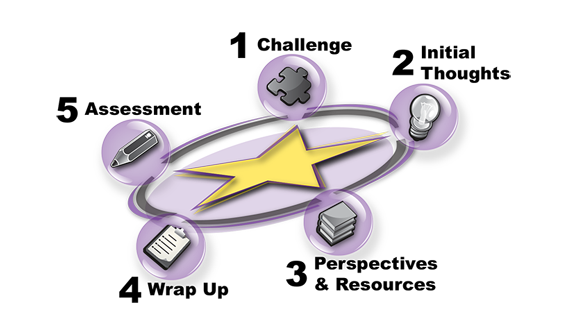
(Source: Iris Center, 2019)
- Challenge – Begins the module with what will be discussed and covered in the module.
- Initial Thoughts – Asks questions about what you know about the topic being covered
- Perspective and Resources – Provides objectives for the modules and connections to professional learning standards – CEC, InTasc, CAEP, NCATE
- Wrap-Up – Summarizes the information from the module and has a section to revise your initial thoughts with the new information required from the module
- Assessment – Provides an assessment to both identify the knowledge you gained from the module and an application based question to apply your new knowledge
If you would like to take one of the modules, all you have to do is sign up for a free account. You can also get access to professional development certificates that can be used for professional development credits for your district.
Let’s look at these modules:
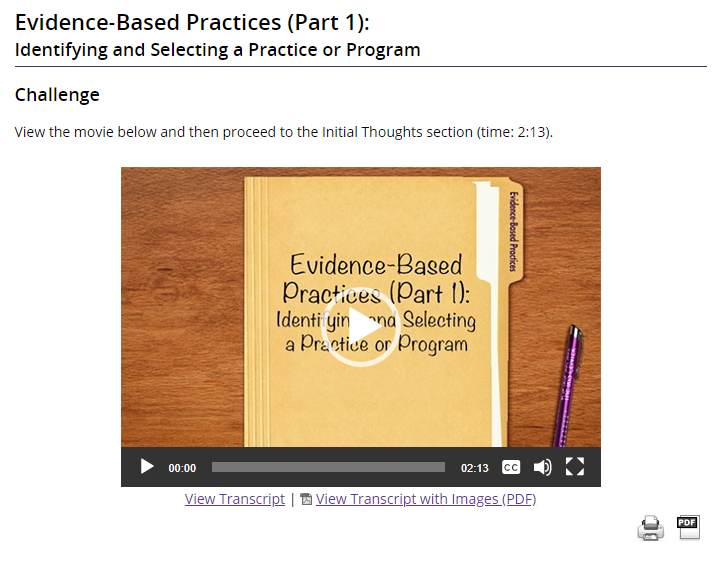
(Source: Iris Center, 2019)
Description of the Module: “This module, the first in a series of three, discusses the importance of identifying and selecting evidence-based practices”
To access the module, click here.
Topics covered in this module:
- What is an EBP?
- Why Educators Should Use EBPs
- Considerations When Identifying or Selecting EBP
- Resources: Birth to Three
- Resources: Three to Five
- Resources: K-12th Grade (Including Transition)
- No Suitable EBP: Now What?
Who does the module apply to and how long does to complete it?
Who – general and special education teachers, interventionists, reading and math coaches, administrators, county support staff etc.
How Long? – estimated time 1 hour and 30 minutes
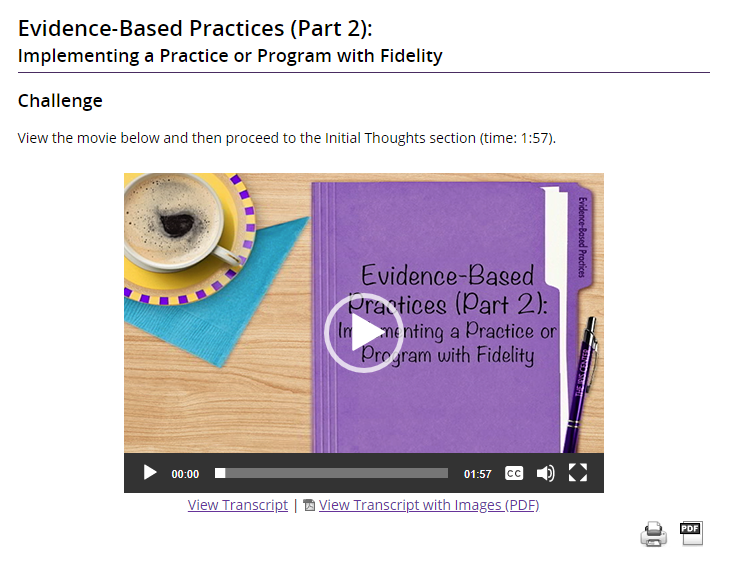
(Source: Iris Center, 2019)
Description of the Module: “This module, the third in a series of three, examines how to evaluate whether an evidence-based practice is effective for the young children or students with whom you are working.”
To access this module, click here.
Topics covered in the module:
- Fidelity of Implementation
- Understand Implementation Procedures
- Prepare for Implementation
- Follow Implementation Procedures
- Risks of Adapting Evidence-Based Practices
Who does the module apply to and how long does to complete it?
Who – general and special education teachers, interventionists, reading and math coaches, administrators, county support staff etc.
How Long? – estimated time 1 hour
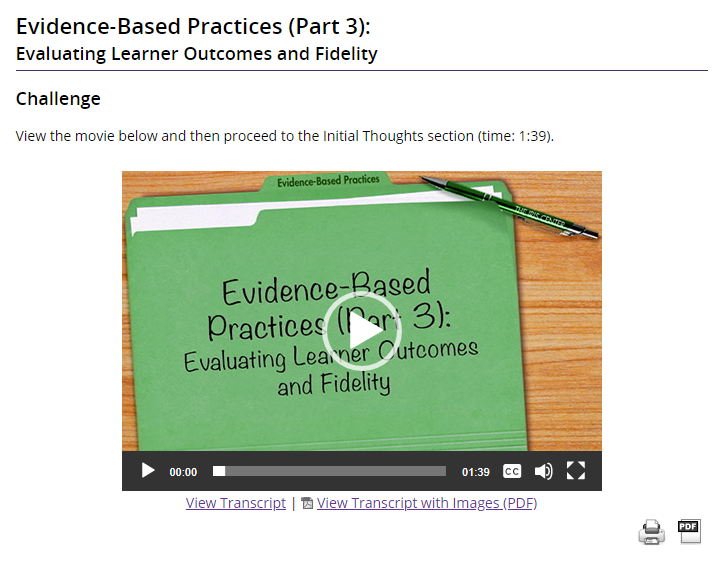
(Source: Iris Center, 2019)
Description of the Module: “This module, the third in a series of three, examines how to evaluate whether an evidence-based practice is effective for the young children or students with whom you are working.”
To access this module, click here.
Topics covered in the module:
- Evaluating the Effectiveness of an Evidence-Based Practice
- Identifying a Progress Monitoring Measure
- Monitoring Progress
- Evaluating Progress
- Identifying a Fidelity of Measure
- Monitoring Fidelity of Implementation
- Evaluating Fidelity of Implementation
- Evaluating the Relation Between Outcomes and Fidelity
Who does the module apply to and how long does to complete it?
Who – general and special education teachers, interventionists, reading and math coaches, administrators, county support staff etc.
How Long? – estimated time 2 hours

The Iris Center has high-quality modules created by the leaders and researches in the field of education. To access these free professional development resources, visit the Iris Center here. You can create a free account and access all of the rich resources the Iris Center has to offer.
Please consider completing the Module Feedback form for the modules you complete. This feedback helps the Iris Center and their incredible employees create and adapt their high-quality resources to support teacher and others in the education field.
References:
Evidence-Based Practices (Part 1): Identifying and Selecting a Practice or Program. (2019). Retrieved November 4, 2019, from https://iris.peabody.vanderbilt.edu/module/ebp_01/#content.
Evidence-Based Practices (Part 2): Implementing a Practice or Program with Fidelity. (2019). Retrieved November 4, 2019, from https://iris.peabody.vanderbilt.edu/module/ebp_02/#content.
Evidence-Based Practices (Part 3): Evaluating Learner Outcomes and Fidelity. (2019). Retrieved November 4, 2019, from https://iris.peabody.vanderbilt.edu/module/ebp_03/#content.
